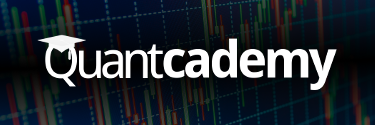In this article we are going to discuss an issue that repeatedly crops up via the QuantStart mailbox, namely how to get a quant job once you have a PhD. There's a lot of confusion around this topic because quite a few people who currently work in academia and want to make the shift believe that it is quite straightforward to "walk into" a high-paying financial role. While this may have been true 10-15 years ago, the reality of the current job market is such that quant roles are now highly competitive and candidates need to stand out if they are to get the best jobs.
Firstly we'll discuss what sort of candidates you will be competing against when considering going for interview. Secondly, we'll discuss how to make an honest assessment of your PhD and what you got out of it that might be relevant to quantitative finance roles. Finally, we'll consider whether it is necessary to return to school in order to train up in a quant-specific qualification.
The Competition
I've made it rather clear on QuantStart that the competition for some of the top quantitative trading researcher roles can be extremely tough. In the UK the best roles tend to be filled well upstream of any "front door" interview process. Usually extremely bright academics in mathematics, physics, computer science, economics or mathematical finance are head-hunted for a particular skill set, such as deep expertise on market microstructure, insight into high-frequency trading algorithms, novel stochastic calculus techniques for certain derivatives pricing regimes or extensive statistical machine learning knowledge that applies to datasets used by such funds.
When such quant researcher roles ARE opened up to the public they will often state that they are looking for "only the best and brightest", which in the UK usually means "Top Five" universities (Cambridge, Oxford, Imperial College, LSE and UCL). In the US this will mean high-end Ivy League institutions. The adverts will often state that they want to see evidence of consistent Mathematical Olympiad prizes and an extensive publication list in a relevant field.
While this is certainly true of the top roles, there are plenty of other (very well paying and prestigious) jobs that also need filling. Bear in mind that there are only so many Mathematical Olympiad winners, after all! Thus one should not be disheartened when seeing numerous adverts asking for such qualifications. There are plenty of smaller funds and boutique outfits that do not have the resources to aggressively hunt for the ultimate talent and so will be more than willing to employ bright PhDs who might not necessarily have an Olympiad track record.
Honestly Assess Your PhD
The first task to carry out when applying for quant roles is an honest assessment of your PhD and what you achieved with it. Primarily you need to consider the level of mathematical ability you were able to attain as well as your computational programming skill.
Quant roles in the derivative pricing space, known traditionally as the "quant analyst" or "financial engineer", require a reasonable amount of mathematical sophistication. Specifically, expertise in stochastic calculus, probability and measure theory. These are topics usually taught in an undergraduate mathematics course, but can form a component of taught graduate school PhDs. In addition they require a good understanding of scientific programming usually in C++, Python or MatLab. Since the role of a quant analyst is often to code up an implementation of a particular algorithm from a research paper, under heavy deadlines, it is quite naturally suited to those with PhDs of this type.
Quant roles in the algorithmic trading and quant hedge fund world are almost exclusively going to require novel methods for generating "alpha" (i.e. excess return above a benchmark). Usually this is accomplished via time series analysis and econometrics, but more recently statistical machine learning techniques have been applied, as have methods related to sentiment analysis. Some of the best quant funds make extensive use of even more advanced graduate level mathematics in the realms of algebraic geometry, number theory and information theory. Hence anything highly mathematically, statistically or physically oriented is likely to be of interest to a top quant hedge fund.
As for computer scientists and strong scientific software developers, generally there is always work available for quantitative developer roles. Although you will be competing against those with industry experience in rigourous software engineering. Hence "academic code" of the "20,000 line single-file of Fortran" variety might be a bit of a hindrance! Make sure to brush up on the more modern software development methodologies such as OOP, Agile, etc.
I want to discuss specific PhD fields as well, to give you an idea of where you might consider focusing your efforts based on what you have previously studied:
- Pure Mathematics - The top funds generally hire the pure mathematicians from esoteric realms such as algebraic geometry and information theory. Banks will also take individuals who study stochastic calculus to a high level for their derivatives research teams.
- Mathematical Finance - Portfolio optimisation and derivatives pricing are two common themes studied in mathematical finance PhDs. You will often have collaborated with banks during your PhD, so it is unlikely your job prospects will be slim! If you are struggling, it can be very helpful to contact department heads as they will often have a strong network.
- Theoretical Physics - Funds will be very interested in your ability to model physical phenomena, either through direct or statistical approaches. Some theoretical physics areas are highly mathematical (Cosmology, String Theory, Quantum Field Theory etc) and so the advice given to theoretical physics PhDs is similar to pure mathematicians.
- Computational Physics/Engineering - The main skillset taught here is how to take an algorithm and produce a robust scientific computing implementation, perhaps in a parallelised fashion. This is an extremely useful skill for quant work both in banks and funds, especially for developing infrastructure. Make sure however to brush up on core topics such as statistics and stochastic calculus prior to interview.
- Statistics/Econometrics - Statisticians and theoretical econometricians will be in good demand from technical quant funds, especially in the Commodity Trading Advisor (CTA)/Managed Futures space. The time series modelling will be highly appropriate here.
- Computer Science/Machine Learning - Many funds are now making extensive use of machine learning and optimisation tools, which are the natural domain of the theoretical computer scientist and, more recently, the "data scientist". Familiarity with statistical machine learning and Bayesian methods will be highly attractive.
- Bioinformatics - Bioinformaticians also make extensive use of machine learning tools on "big data" sets. For interview you will want to emphasise your familiarity with such tools and your programming capability. Depending upon your background you may need to brush up on your (pure) mathematics for interview questions.
- Economics/Finance - Economics and Finance PhDs do not always teach you the mathematical maturity necessary for pure quant work, but it really depends on the project. You will need to be honest with yourself about where you lie on the mathematical spectrum. In addition you will need to consider your programming ability.
Heading Back To School
An extremely common question that I receive in the QuantStart mailbag is whether to return to school for finance-specific training subsequent to a PhD.
I've previously documented my views on Masters in Financial Engineering (MFE) programs as related to quantitative trading. In essence I believe that MFEs are not hugely suitable for quantitative trading research work, but they are a good entry point into investment banking quant work.
If your PhD was not heavy on quantitative or programming work, but you have a sufficiently mature mathematical background, then it can make good sense to take a MFE assuming that you can afford to fund the course. A MFE at a top-tier school will provide you with a solid network of other candidates (and thus people who might later help you secure a role), a relatively healthy recruitment position upon graduation and a useful skillset for investment banking derivatives pricing work.
I would advise against returning to school if you have a strong quantitative PhD as you simply won't need the additional qualifications and you should be able to pick up the necessary interview material yourself, albeit with a lot of study.
If you have a PhD in a non-quantitative field and your background is not sufficiently mathematical, then you should definitely consider that you will likely need to return to school if you truly want to work in quantitative finance. In particular you will need to study an undergraduate degree that has a strong quantitative component such as Mathematics or Physics as these two degrees will generally let you transition into other quantitative fields easily.



